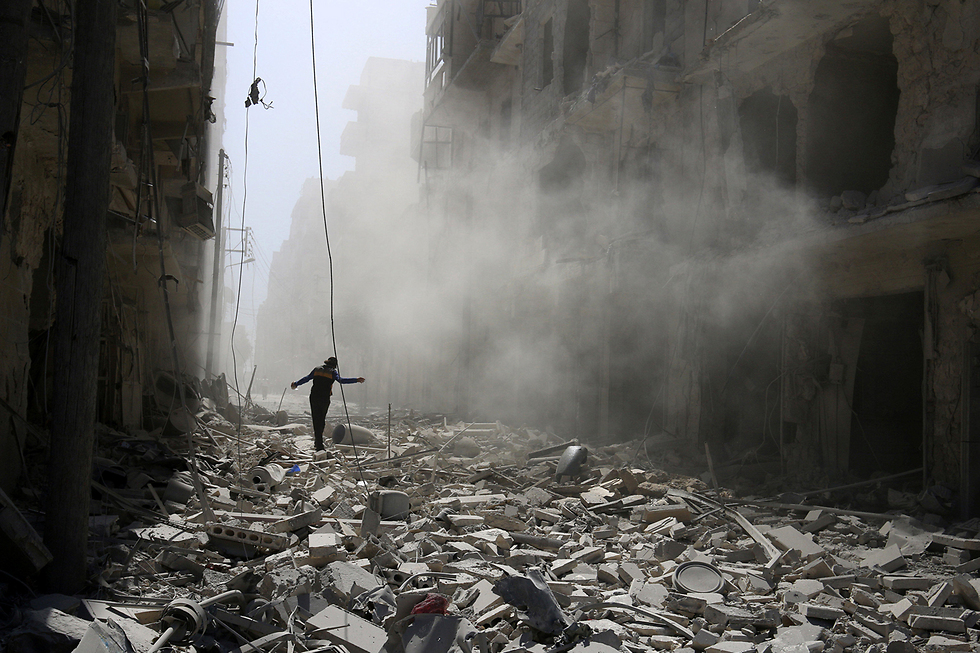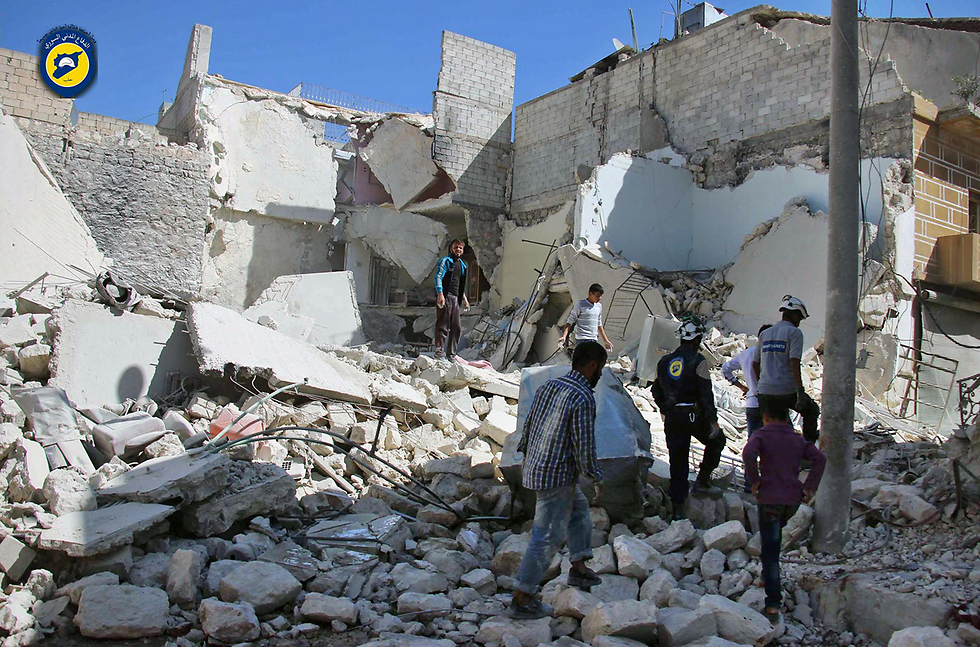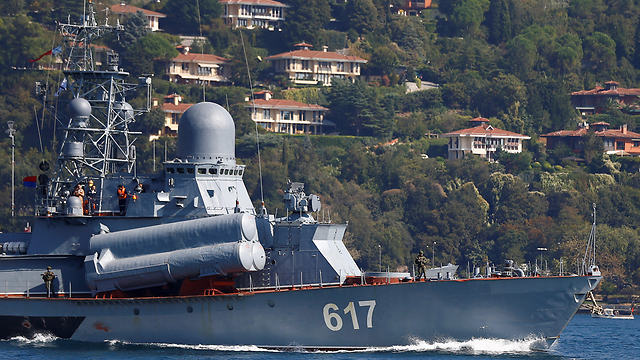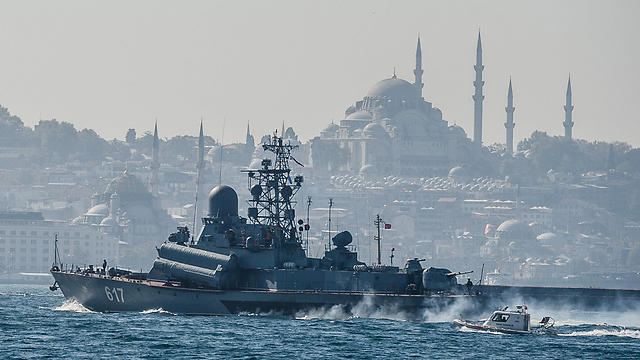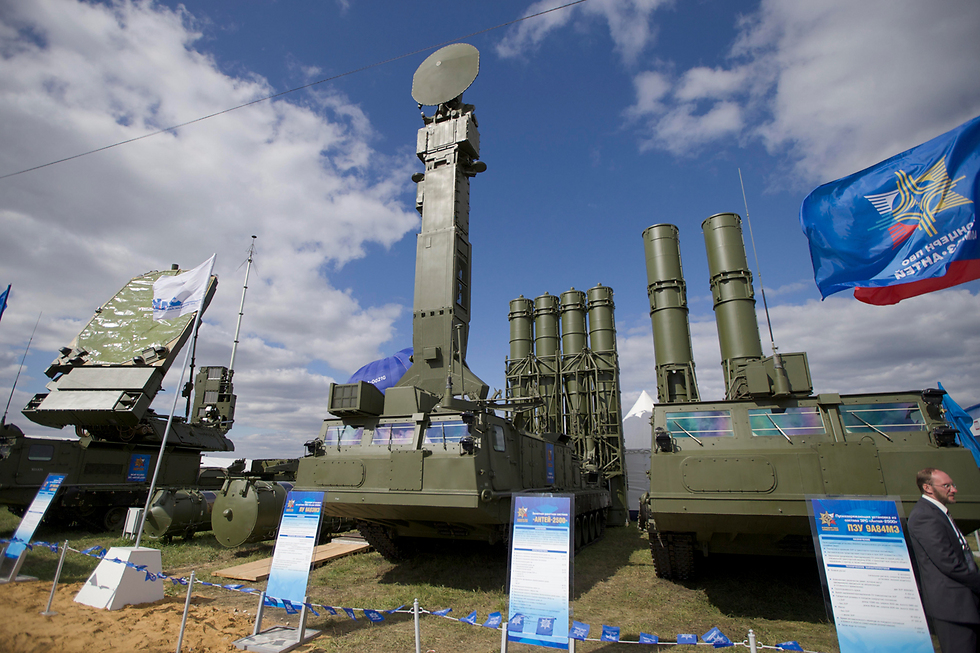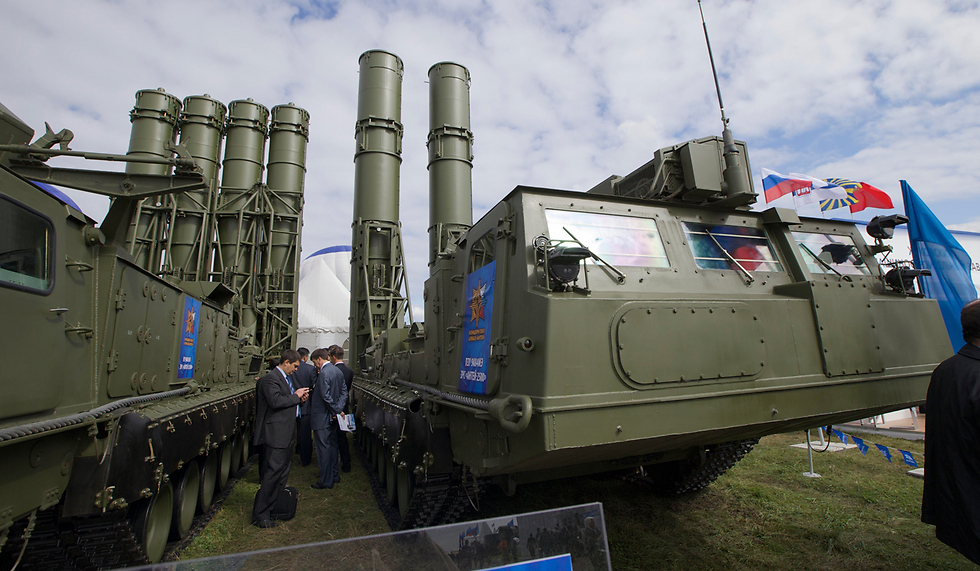
When Putin decided to help Assad
Analysis: A year after it began its direct intervention in the civil war in Syria, has Russia achieved its goals? And how has the Russian involvement affected Israel?
One year later, has Russia achieved its goals? What has changed on the Syrian border where Israel is concerned? According to official reports, there are 4,000 Russian soldiers in Syria. Only 20 have been killed since September 30, 2015. Can these figures be trusted?
Saving the regime
In the summer of 2015, Syria appeared to be headed towards a turning point. Although there are hundreds of factions and militias on the ground, it’s safe to say that the civil war divided Syria into three competing factions: The army of President Bashar Assad’s regime, which is supported by Hezbollah and Iranian forces; the “moderate” rebels in central and western Syria; and the Islamic State (ISIS) in northeastern Syria. After four years of battle between the three camps, Assad appeared to be collapsing. The Russians intervened in order to save the only regime in the Middle East which allows the Russian army to dock and act on the shores of the Mediterranean Sea. This is a strategic interest which Russian President Vladimir Putin could not give up on.
Salvation arrived for the Syrian regime in September 2015 as the Russians – who until then had settled for supplying weapons for the regime’s survival – began dispatching forces and planes to the shores of Tartus and to the Khmeimim Air Base near Latakia. The Russians’ first achievement was quick and certain – within several months, they saved the Syrian regime from collapsing and stopped the rebels’ progress. The Syrian army moved from defense to offense. But the euphoria in Assad’s camp quickly faded away as military and diplomatic problems began.
Different goals
The rebels surprised the Russians, showed strong resistance and even managed to record achievements in places that were not bombed by the Russians. They developed survival methods, such as digging tunnels and burning tires so that the smoke would get in the planes’ way. The entire Idlib district is still under the control of the former al-Qaeda branch in Syria, Jabhat al-Sham (“The Victory Front”), which changed its name from Jabhat al-Nusra (“The Support Front”), although it was bombed incessantly. The slow progress of the Syrian army and Hezbollah convinced the Russians that they must combine the warfare with diplomatic negotiations.
The Russian effort to negotiate with the United States and with the rebels’ supporters, led by Saudi Arabia, angered the Iranians just like they were angered by Russia’s pre-coordination with Israel. In the first months of the Russian involvement, differences of opinions were raised between the allies. Russia’s main desire is to defend its military interests in northwest Syria, while the regime and Iran want to reoccupy the entire country. The conflict of interests was shown every time Russia reached a ceasefire and the Syrian army violated it.
It seems that Assad and the Iranians have failed to understand or accept the Russians’ sophisticated tactic – reaching a ceasefire with “moderate” rebels in order to focus the fighting against Jabhat Fatah al-Sham and ISIS. Assad never agreed to distinguish between moderate rebels and radical rebels and has always argued that there is no revolt or revolution in Syria, but simply a conspiracy by Saudi Arabia and its allies to turn Syria into a Sunni Islamic state.
While the Syrian army is making slow progress, it is consistent and the rebels have hardly recorded any achievements. According to Russian media reports, Russian planes have enabled the Syrian army to reconquer more than 200 villages and expand control of the key cities – Damascus, Hama, Homs and Aleppo. Hundreds of rebels have been killed, including senior leaders, led by “Army of Islam” leader Zahran Alloush. Early 2016 marked a significant deterioration in the situation of the “moderate” rebels. They are under a siege almost everywhere and are being bombed incessantly, especially in Aleppo, which is the rebels’ capital and the second most important city in Syria.
The Russians are hoping to reach victory in Aleppo in the coming months, a victory which will break the opposition’s fighting spirit and end the revolt in Syria once and for all. It will only be in the next stage of their plan that they will focus their efforts on the war on ISIS.
Nonetheless, the Russians have already recorded achievements in the war on ISIS by diminishing its control in northern Syria through bombings, and first and foremost by occupying the ancient city of Palmyra without destroying its antiquities. The Russians organized a concert at the same site in Palmyra where ISIS used to execute people, The Russians did this in order to convey the message that the Russians are fighting against barbarism.
Al-Mayadeen network’s summary
The Lebanese al-Mayadeen network, which is known for its support of Hezbollah and the Assad regime, published a series of opinion articles on the first anniversary of the Russian intervention.
Dr. Qassim Izz al-Din, a graduate of Paris-Sorbonne University, admits that “the Russian intervention did not lead Syria to a safe harbor, did not stop the war and did not eliminate terror as Russia had pledged when it dispatched its planes, but it did prevent Syria from falling into the hands of gunmen and the state’s institutions from collapsing, like what happened in Libya.
“The intervention internationalized the conflict in Syria and created a balance between the US which supports the rebels and Russia and the Syrian regime, which will affect the achievement of a balanced solution in the future.”
Monzer Sulaiman, director of the al-Mayadeen offices in Washington, believes that the US made a mistake in thinking that Russia would agree to compromises on the Syrian issue due to the crisis in Ukraine. In his opinion, the US was wrong to allow Russia to be a legitimate decisive side in the negotiations on Syria’s future. He writes that the point of agreement between the US and Russia is on the war on ISIS and the point of disagreement is over President Assad remaining in power.
Lebanese journalist Mohammed Saif al-Din wrote that through their intervention, the Russians prevented the terrorists from taking over Syria, which would have turned the country into a global terror base. From Syria, they would have reached the Caucasus region and even Russia itself. Putin had estimated that 3,000 Islamists in Syria come from former Soviet Union countries. He says all commentators were wrong in their predictions that Syria would become a second Afghanistan, that Russia would not be able to financially afford the operation due to its condition, that it would become an illegitimate party in the international arena or that Islamic terror would hit the heart of Russia as an act of revenge.
According to Saif al-Din, Russia failed in only one area – in its attempt to turn the Kurds into allies. The latter preferred the American protection, and that will lead them in the future to a clash with the Syrian regime.
Salam al-Obaidy, director of the al-Mayadeen offices in Moscow, argues that the Russian intervention restored the global situation to a state of bipolarity and proved that the US is no longer the only global police. He believes that Russia will remain in Syria and will leave until the battle is decided on the ground, militarily or politically.
How does Russian intervention affect Israel?
The positive side of the Russian intervention is that Israel has a partner. The landlord in Syria now is Putin rather than Assad or Ayatollah Ali Khamenei, Iran’s spiritual leader. Israel can coordinate its activities in Syria with President Putin. Iran also appears to have suspended its attempts to create a Hezbollah force on the Golan border due to the IDF’s stubborn battle against this infrastructure and thanks to Israel’s diplomatic efforts in its talks with Russia.
The negative side of the Russian intervention are the reinforcement of the “Muqawama” (resistance) axis and an increase in the Syrian army’s armament level, which recently received a reinforcement of S-300 missiles. The Syrian missile upgrade will make it difficult for the Israel Air Force to act against targets in Syria in the future. In addition, Israel will find it hard to supervise the transfer of Russian weapons to Hezbollah or to the Syrian regime and act against such transfers under the current conditions.
The Russians are not the good side in the conflict in Syria. They support a much more murderous regime than ISIS, which is responsible for the destruction of the Syrian state, for the immigration of millions of its citizens and for the killing of hundreds of thousands. But the alternative – a victory for the opposition, which is almost entirely made up of Sunni Salafi jihad organizations – is possibly much worse for Israel and for Syria itself.
Unfortunately, the Arab Spring failed in Syria in 2011 and democracy is a passing dream. The young people of the revolution joined jihadi organizations long ago, and all of Saudi Arabia and Qatar’s money is being funneled to them.
There are two options on the ground; a division of Syria into the Islamic State in the east and Islamic emirates of the Salafi rebels in the West, or the option being advanced by Russia – an Assad regime dictatorship in Syria. Which is worse?
Dr. Yaron Friedman, Ynet's commentator on the Arab world, is a graduate of the Sorbonne. He teaches Arabic and lectures about Islam at the Technion, at Beit Hagefen, and at the Galilee Academic College. His book, "The Nusayri Alawis: An Introduction to the Religion, History and Identity of the Leading Minority in Syria," was published in 2010 by Brill-Leiden.










